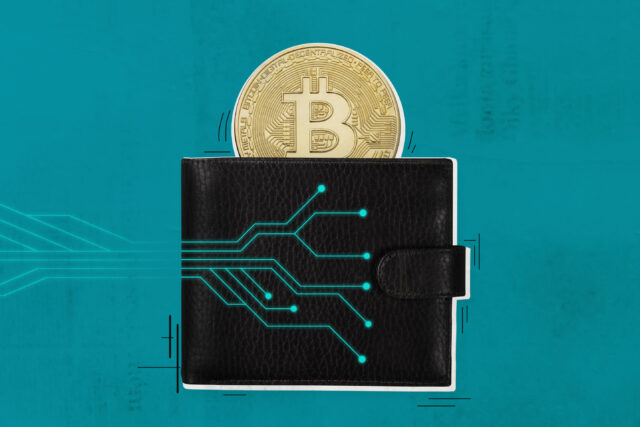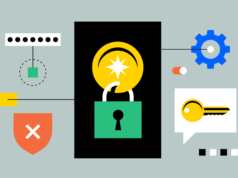
In the ever-evolving landscape of digital currencies, a crypto wallet emerges as a pivotal tool, bridging the gap between the intangible nature of cryptocurrencies and the tangible needs of users.
Unlike traditional wallets that house paper money and cards, a crypto one is a digital entity, designed to store, manage, and facilitate the use of cryptocurrencies on the blockchain.
In this article, we’ll delve into the concept of crypto wallets, their purpose, and how they work to empower individuals and organizations within the realm of digital finance.
Understanding Purpose

In a world where cryptocurrencies reside purely as entries on a blockchain, the notion of ownership demands a new approach. A crypto wallet serves as this conduit, offering users the means to verify their account balance and gain visibility into their cryptocurrency holdings.
Much like a conventional bank account provides a balance, it enables users to keep track of their digital wealth.
However, the function of a crypto wallet extends well beyond the realm of mere balance tracking. It assumes a pivotal role in expediting cryptocurrency transactions, akin to the way a conventional bank account facilitates monetary transfers.
In this digital landscape, a crypto platform empowers individuals to seamlessly engage in the exchange of cryptocurrency payments, effectively positioning itself as the focal point for orchestrating a myriad of digital financial endeavors.
Diverse Utility of Crypto Wallets
The significance extends beyond basic transactions. These digital repositories are essential for various functions that underpin the practical utility of cryptocurrencies:
- Asset Management: They empower users to monitor and manage their cryptocurrency holdings effectively. They provide a snapshot of how much of each digital asset is in the user’s possession.
- Transactions: Sending and receiving cryptocurrency payments is a cornerstone feature. They streamline the process of transferring digital funds securely.
- Decentralized Apps (dApps): The emerging landscape of Web 3.0 dApps relies on crypto wallets for user interaction. They enable seamless connections to decentralized applications, fostering a new era of user-driven platforms.
- Username Identities: Every cryptocurrency is rooted in the blockchain, and a crypto wallet introduces the concept of usernames linked to public key addresses. This linkage facilitates hassle-free transactions within the blockchain ecosystem.
- Key Management: Cryptocurrencies primarily exist as public key addresses on the blockchain. A crypto wallet empowers users to manage their private encryption keys, essential for accessing specific addresses and authorizing transactions.
Unraveling the Inner Workings

The mechanics hinge on the principles of cryptographic security and public-private key infrastructure. Unlike a traditional wallet that physically holds currency, a crypto one safeguards the private keys that grant access to the blockchain, where a user’s cryptocurrency holdings are stored.
In the realm of traditional banking, account numbers serve as unique identifiers. Similarly, public keys fulfill this role within the blockchain ecosystem.
However, merely possessing a public key isn’t sufficient for conducting transactions. Private keys are the linchpin that enables users to access and manipulate their cryptocurrency holdings securely.
Categories of Crypto Wallets

They come in various flavors, catering to different preferences and security needs:
- Hot: These are online wallets always connected to the internet. They are convenient for everyday transactions but potentially susceptible to cyber threats.
- Cold: Also known as cold storage, these wallets are offline and disconnected from the internet. They provide enhanced security, making them suitable for long-term asset storage.
Types of Cold Wallets
- Hardware: These store private keys on a physical device like a USB drive, providing isolation from online threats.
- Paper: A low-tech solution where users write down public and private key information on paper.
Types of Hot Wallets
- Online (Web): Linked to online services like crypto exchanges, they offer easy accessibility but with some security trade-offs.
- Desktop: Installed applications on users’ computers that store cryptographic keys locally.
- Mobile: Apps on smartphones that enable users to store, send, and receive cryptocurrencies on the go.
Custodial vs. Noncustodial Wallets
Source: saylcloud.com
Crypto wallets fall into two main categories based on control:
- Custodial: Managed by a third party like a cryptocurrency exchange, they offer convenience but relinquish some control to the custodian.
- Noncustodial: Users hold the private keys, granting them full control over their assets but also responsibility for security.
Noncustodial
Pros
- Direct control over crypto assets.
- Rapid access to funds.
- Resistant to censorship.
Cons
- Learning curve for usage.
- Potential user errors.
- Sole responsibility for security.
Custodial
Pros
- Integrated convenience.
- Fiat currency conversion.
- Managed by a provider.
Cons
- Limited control.
- Risk of censorship.
- Provider-related risks.
Choosing the Optimal Crypto Wallet
Source: bitcoin.com
Selecting the right crypto wallet requires thoughtful consideration:
- Cold vs. Hot: Opt for a hardware wallet if security is paramount, or an online for ease of use.
- Security: Prioritize wallets with strong authentication mechanisms like multifactor authentication.
- Blockchain Support: Ensure the wallet supports the cryptocurrencies you intend to use.
- Integration and Access: Pick a wallet that seamlessly integrates with your chosen crypto exchange.
Inheriting Cryptocurrency and Crypto Wallets
Inheritance of cryptocurrencies involves challenges unique to the digital realm. Ensuring smooth transition of digital assets involves measures such as sharing private keys, using exchange vaults, establishing joint accounts, or setting up trust accounts.
Final Thoughts

Crypto wallets are more than just virtual pockets; they’re the bridge between the intangible nature of cryptocurrencies and real-world utility.
Whether you’re a novice exploring the crypto landscape or a seasoned enthusiast, understanding the purpose and mechanics of crypto wallets empowers you to navigate the exciting world of digital finance with confidence.












